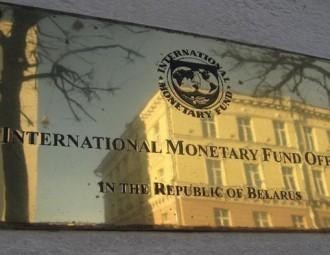IMF: Belarus shouldn’t raise salaries in the current year

To contain inflation in Belarus and reduce external imbalances in Belarus subsidised lending is to be sharply curtailed and salaries in the remaining period of the current year shouldn’t be raised.
This statement head of the International Monetary Fund (IMF) mission in Belarus David Hoffman made at a briefing for journalists on October 28. The mission stayed in Belarus during October 22-28.
According to David Hoffman, in order to contain inflation and reduce external imbalances in Belarus "subsidized lending should be dramatically reduced and wages are not to be raised in the remaining period of the current year."
Serious commitments to implement a complex package of consistent and decisive macroeconomic policy measures and deep structural reforms that IMF member states could back are required for a new IMF program for Belarus, the head of the IMF mission in Belarus stressed.
“A new IMF program still needs credible serious commitments to implement a complex package of consistent and decisive macroeconomic policy measures and deep structural reforms, which are implemented initially to a considerable degree, that IMF member states could back”, - David Hoffman noted.
It is noteworthy that meeting with the IMF mission on October 28, Prime Minister of Belarus Mihail Miasnikovich underlined that Belarus will finish the year 2014 with economy growth, and the balance of payments for the next year is understandable and has been thoroughly calculated. As to the remark concerning raise of salaries in the country, the Prime Minister finds them incorrect.
-
03.01
-
07.10
-
22.09
-
17.08
-
12.08
-
30.09










































